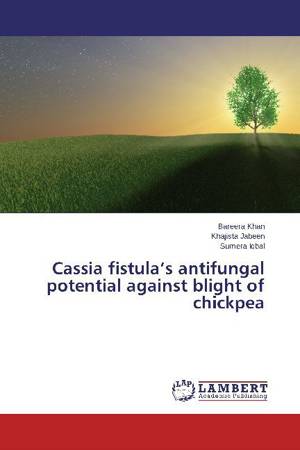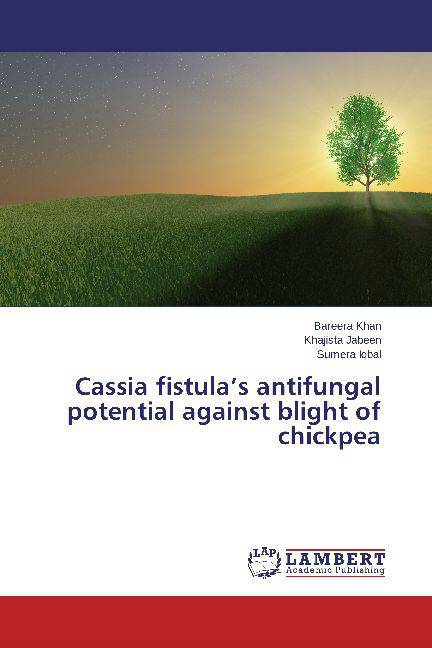
- Afhalen na 1 uur in een winkel met voorraad
- Gratis thuislevering in België vanaf € 30
- Ruim aanbod met 7 miljoen producten
- Afhalen na 1 uur in een winkel met voorraad
- Gratis thuislevering in België vanaf € 30
- Ruim aanbod met 7 miljoen producten
Zoeken
Cassia fistula's antifungal potential against blight of chickpea
Bareera Khan, Khajista Jabeen, Sumera Iqbal
Paperback | Engels
€ 47,95
+ 95 punten
Omschrijving
Chickpea (Cicer aretinum L.) is the third important pulse crop in the world. It is a rich source of vegetable protein for human nutrition. Ascochyta blight caused by fungus Ascochyta rabiei is the major disease limiting chickpea productivity worldwide. It causes high yield loss in chickpea annually and may cause total crop failure under epidemic conditions. Management strategies are aimed at preventing the occurrence of disease and limiting its spread. Use of fungicides to control this disease is effective, but pesticides pollute the environment and cause health hazards. Botanical derivatives are more environmentally safe than synthetic chemicals. Cassia fistula is well known for its pharmaceutical, antifungal & antimicrobial properties. So, in present study the antifungal activity of C. fistula was evaluated against the chick pea blight.
Specificaties
Betrokkenen
- Auteur(s):
- Uitgeverij:
Inhoud
- Aantal bladzijden:
- 52
- Taal:
- Engels
Eigenschappen
- Productcode (EAN):
- 9783659570070
- Verschijningsdatum:
- 17/07/2014
- Uitvoering:
- Paperback
- Afmetingen:
- 150 mm x 220 mm
- Gewicht:
- 91 g

Alleen bij Standaard Boekhandel
+ 95 punten op je klantenkaart van Standaard Boekhandel
Beoordelingen
We publiceren alleen reviews die voldoen aan de voorwaarden voor reviews. Bekijk onze voorwaarden voor reviews.








